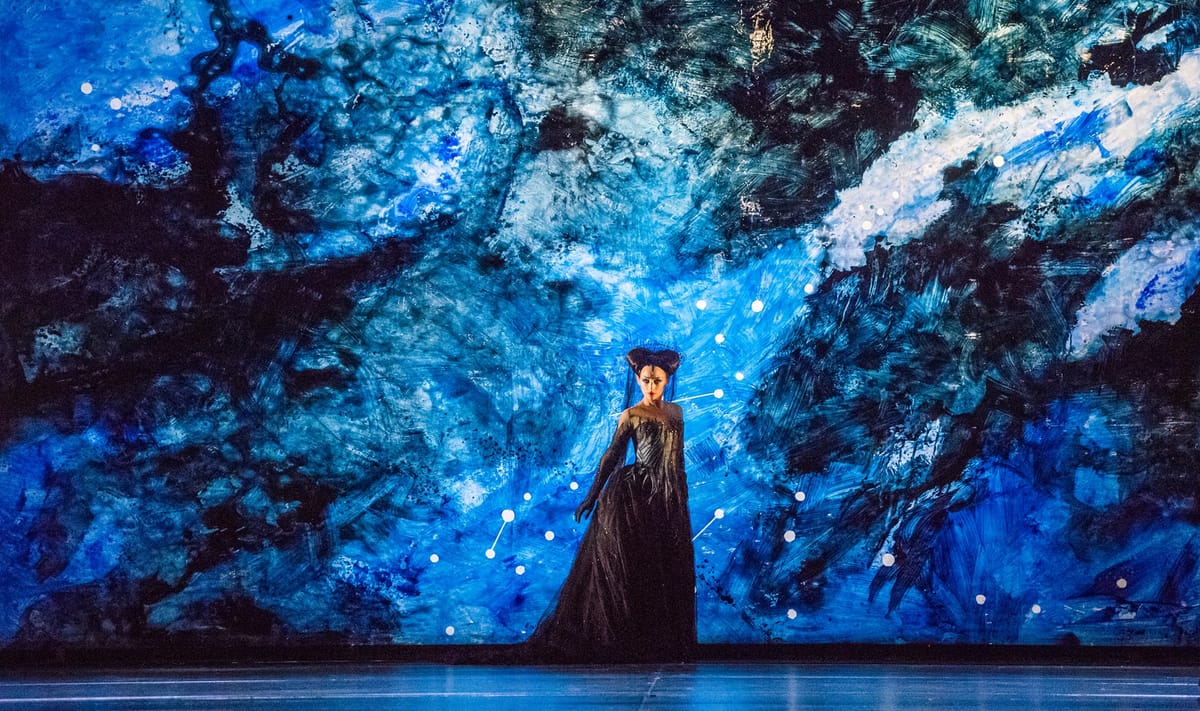5 opera mothers from hell

They’re mean, mad, and even murderous: call it sexism, or call it a series of very loud Freudian slips, but the creators of opera have never been too kind to mothers. Still, Mother’s Day is here; despite the generally poor representation they have in our favourite operas, these crazy mamas sure do get some great music.
The Queen of the Night in Die Zauberflöte
If you saw the movie Amadeus, you chuckled as director Miloš Forman drew a clear comparison between Mozart’s shrill mother-in-law and the impossibly high arias he wrote for the Queen of the Night in his infamous Die Zauberflöte. Mother to Pamina, the captive maiden whom Tamino helps to “rescue” from Sarastro, the Queen of the Night seems to embody the kind of mom who’s super sweet when company is around (ie. princes named Tamino), but seems to bare her claws when left alone with her daughter.
Since you’re likely more familiar with her claw-baring aria, we’ll treat you to her Act I aria, where she’s extra maternal and maybe even a bit flirty with her daughter’s would-be boyfriend:
Klytemnaestra in Elektra
They say women are biologically hard-wired to love their kids, but the writers of Greek mythology seem to disagree. Klytemnaestra, mother of Elektra (and others), is the self-made widow of Agamemnon, a title she earned by killing her husband with the help of her lover, Aegisth. Understandably, Elektra isn’t too pleased with her mother these days, but when it comes to familial discord, Klytemnaestra seems perfectly fine throwing the blame right back on her daughter.
This is the first time we meet the formidable woman, and in Strauss’ opera, Klyemnaestra has a knack for rolling out every abhorrent method of passive-aggressivity in one condensed scene:
Kostelnička in Jenůfa
Technically, Kostelnička Buryjovka is Jenůfa’s stepmother, but she still has all the traits of operatic mums. In this truly horrible story, Kostelnička tries to solve the problem of an un-marryable step-daughter, and the baby she had with a guy who no longer wants to be involved; how does she solve the problem? Killing the baby, of course.
The story ends up alright, considering; Kostelnička admits to the crime and goes to jail, but jeez. She kills a baby.
Gertrud in Hänsel und Gretel
On some days, Mutter Gertrud seems like a mean old lady who doesn’t like her children; on other days, she just seems like an average mom who’s had a long day and doesn’t feel like coming home to her kids’ noise and mess. If you pay attention to the original story by Hans Christian Andersen, the Mother is equal parts heartless and opportunistic (she’s actually a stepmom, getting morbidly realistic about the two kids that she and their dad can’t afford). In the opera by Humperdinck, she’s a woman with an alcoholic husband, and who can barely support the kids that are dancing like grubby jerks around her tiny little kitchen; she’s just basically had it up to here.
Also, she feels bad about yelling at her kids, she just doesn’t tell them that.
Azucena in Il trovatore
Ah, the whole, “I burned the wrong baby” chestnut. It’s pretty horrible, but also so outlandish that Verdi’s Il trovatore holds a special place among operas with crazy plots. We go on an emotional rollercoaster, hearing about how Azucena burned a baby alive as payback for the Count who executed her mother over accusations of witchcraft. The burned baby was supposed to be one of the Count’s two sons, but apparently Azucena got confused and burned her own baby by accident.
Azucena ends up raising Manrico, the younger of the Count’s sons, and doesn’t tell him he’s not her biological son until he’s an adult. And in an ultimate twist, Manrico ends up being killed by his older brother – the Count Jr. – who had spent his whole life thinking Azucena had burned his baby brother and was set on revenge.
Insanity! But it makes for great drama, in particular this scene between Azucena and Manrico, when she tells him about his parentage, and her complicated relationship with fire.
By Jenna Simeonov. Republished with permission from Schmopera.





